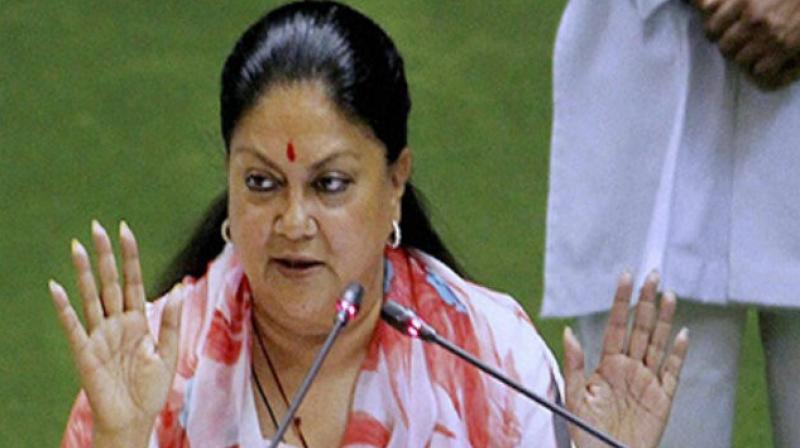After criticism, Vasundhara Raje govt withdraws draconian' gag law

Jaipur: Rajasthan government has withdrawn draconian bill that aimed to protect corrupt public servants. Chief minister Vasundhara Raje made the announcement in the state assembly on Monday.
The Criminal Laws (Rajasthan Amendment) Bill, 2017 was tabled in the previous session in October to replace an ordinance promulgated on September 7 under which prior sanction from an authority was required before an investigation into an offence committed by a public official could commence. However, as the move by the Vasundhara Raje government drew widespread criticism from various quarters, the bill was referred to select committee of the house.
Also Read: Amid protests, Rajasthan sends 'gag' ordinance to Assembly select committee
“We allowed the ordinance to lapse and the act didn’t come into force therefore any talk of ‘black law’ was misplaced. Yet, if it all boils down to withdrawing the concerned bill, then the government is withdrawing it,” Raje said.
State Congress president Sachin Pilot has described the announcement as a victory of people, Congress party and media struggle. He however, said withdrawing the bill was not enough rather the chief minister must initiate investigation into corruption charges against her ministers and stop from protecting corrupt.
“The CM had brought this ‘black law’ to institutionalise corruption and despite strong criticism the government was hell bent on implementing this act by referring it to select committee. However, the defeat in recent by-polls and constant pressure from the Congress forced the CM to withdraw it,” said Pilot who had challenged the bill in the Rajasthan High Court.
What was in the ‘gag’ law:
The bill sought to stop courts from taking up complaints against ministers, lawmakers and officials without the government's approval.
It gave the government six months to decide if a court should order an inquiry into a private complaint against a minister, lawmaker or an official.
The most controversial clause was to impose ban on the media from disclosing the identity of the judge or any public servant facing allegations, unless the government has vetted the case. Journalists can be sentenced to two years in jail for violating the rule.

